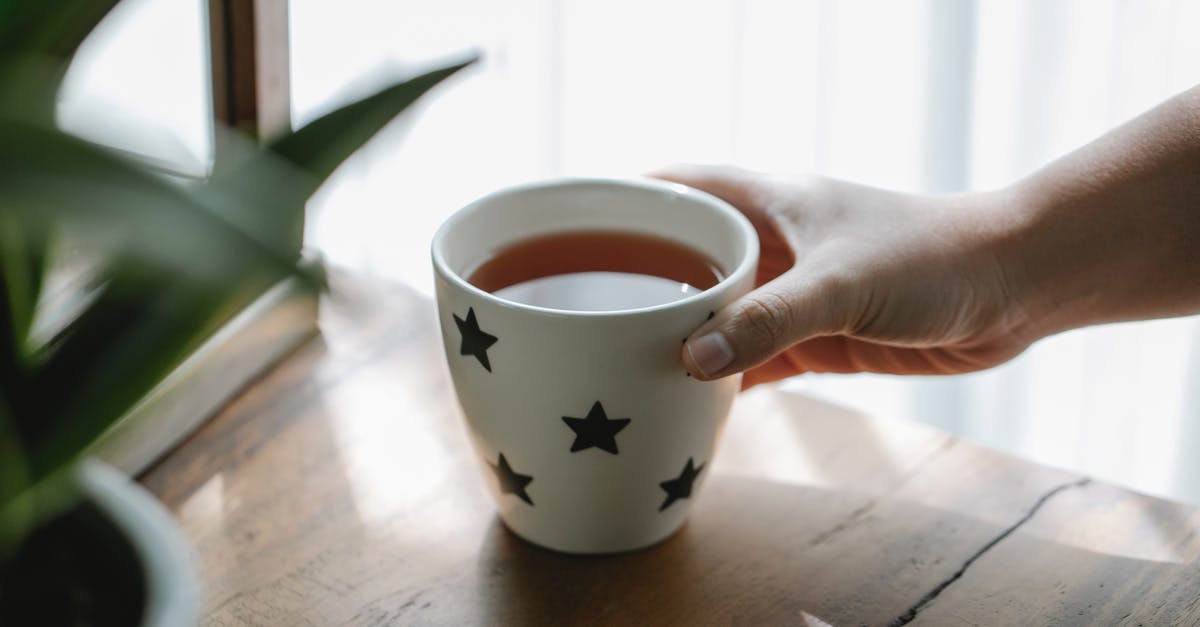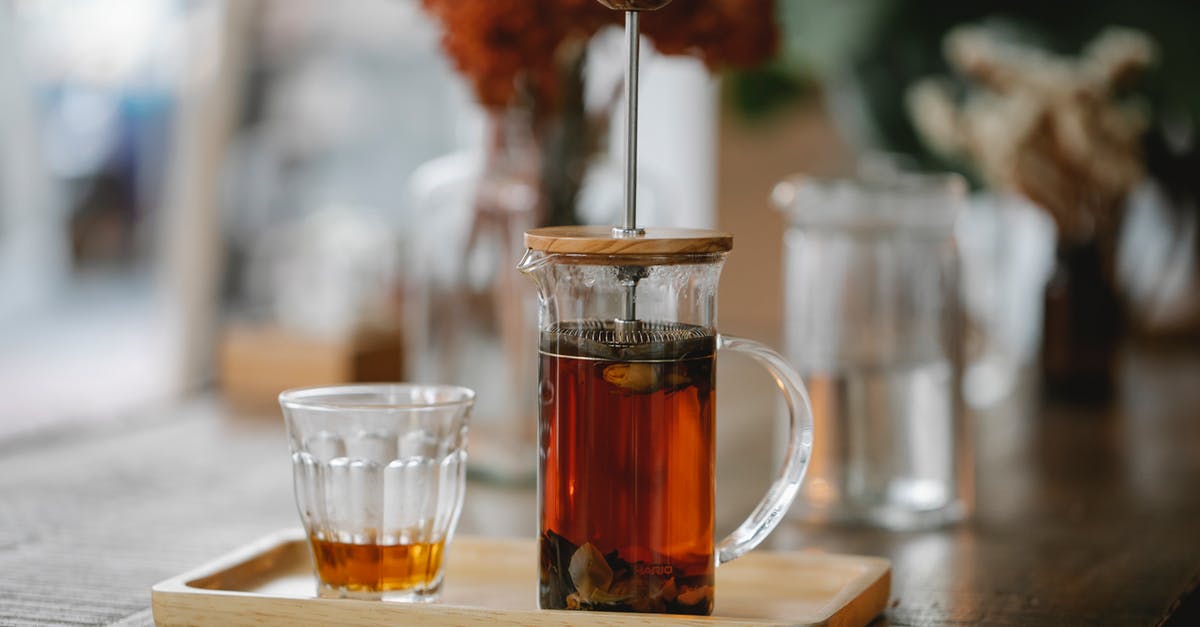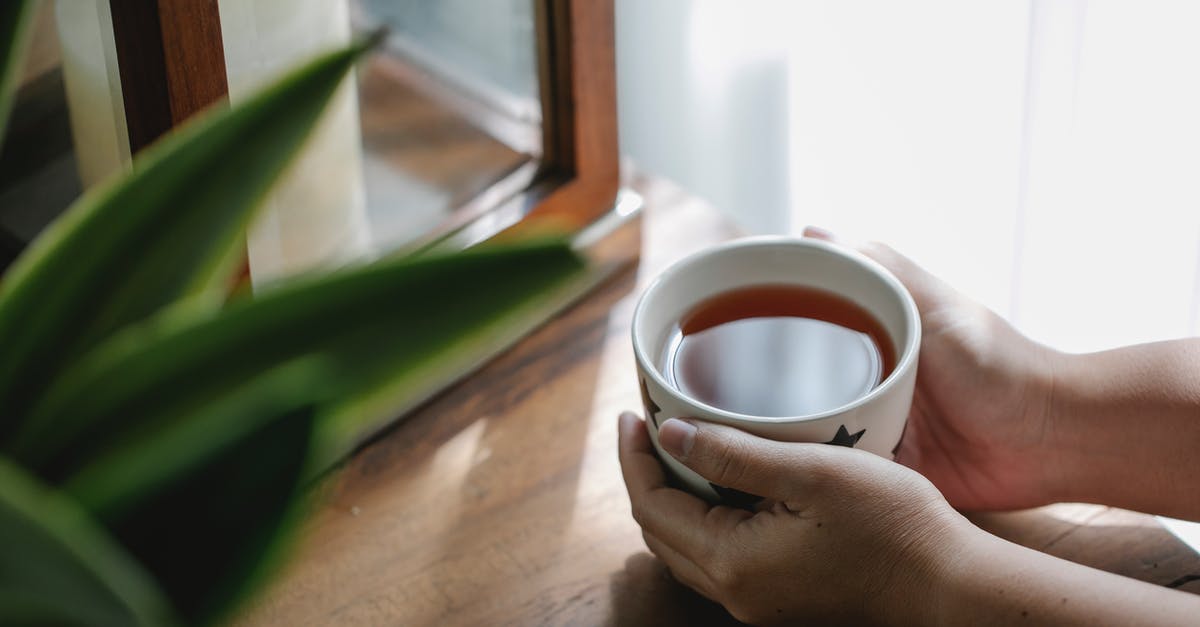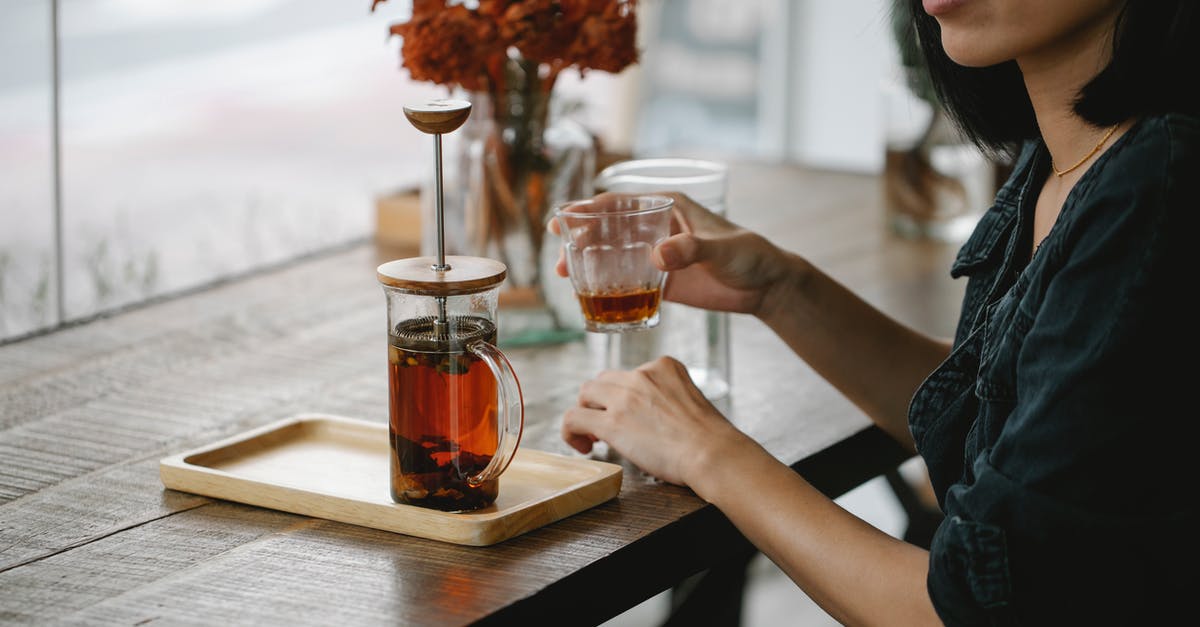Why is herbal tea brewed at boiling temperature?

I commonly see charts that recommend brewing green and white teas at lower (140-180 F) temperatures, black and oolong and pu-erh teas at higher temperatures (170-200) and herbal teas at full boil (208+).
I always just kind of took this as gospel, and one time accidentally brewed some green tea at too high a temperature and it tasted terrible so that reaffirmed my faith.
But I was making an herbal tea recently and used the temperature setting for green tea, and it tasted just fine. Great, actually. And that made me wonder, why is herbal tea recommended at such a high temperature? Is it to bring out more of the flavor?
Best Answer
The problem is that "herbal tea" is a very broad category. Some herbs, like woody stems or roots, require a bit more "decocting," which the higher temperature helps with. Ginger or ginseng root, pine needles, rose hips, sarsaparilla, and similar plant bits all fit this bill, and some of those I'd honestly go ahead and boil for some time, not just steep. But there are other herbs that are much more delicate and benefit from lower temperatures. Lemon balm, for example. It makes the most incredible tea, but it's best to treat it like green tea with a longer steeping time. With boiling water it loses a lot of its fresh lemony taste.
Some more common herbal teas like chamomile and mint are a bit more middle-of-the road with this regard and probably respond well to a boiled steep, but you might find them better in a gentler infusion.
It's possible that two main factors are that manufacturers figure consumers can't be bothered to sort this all out and probably don't consume herbal teas consistently enough to work out these subtleties (at least relative to tea), and that the traditions surrounding most of these teas were oriented towards their use as medicine. Freshly gathered or home-dried herbs are usually clean and safe enough for a healthy person to consume without sterilizing them, but if you're trying to treat someone who's already sick and vulnerable, boiling your materials may be wise. Our modern culture and economy tend to radically simplify such traditions to make them sellable, and then even those less capitalistically inclined wind up repeating the same lines they've seen on the sides of chamomile tea boxes, and before you know it everyone's referring to using a single steeping method for a very broad range of very different plant bits.
I'd recommend experimenting to figure out what works best for any given herb, with the caveat that certain things like dried elderberries quite possibly should be boiled regardless. I'll nibble a few raw myself on occasion but sensitivities differ.
Pictures about "Why is herbal tea brewed at boiling temperature?"



Why does herbal tea need boiling water?
Boiling water does effectively kill germs but spores can, however, withstand this process. These more resistant forms of germ can germinate in hot water. BfR is of the opinion that water from hot water dispensers is not suitable for the preparation of herbal or fruit teas.What temperature should herbal tea be brewed?
Herbal tea temperature You should prepare herbal teas using water that has reached a full boil (approximately 212 degrees.) This means that there's no need to carefully measure the temperature; you can just wait for your kettle to start boiling.How does temperature affect the brewing of tea?
How does temperature affect the brewing of tea? Too Hot, Water temperatures that are too hot dissolve tannins and destroy the other desirable compounds in tea. Thermal shock from overly hot water can also burn sensitive tea leaves. The result will be a bitter, astringent, and unbalanced brew.Why do teas need different temperatures?
Every type of tea has a \u201cright\u201d temperature. When tea is brewed, tannins, amino acids, aroma and flavor compounds are released from the leaves. Some kinds of tea require less heat, while others need more to maximize their distinctive attributes.Making tea? DON'T BOIL YOUR WATER!! (Tea Brewing Temperature)
Sources: Stack Exchange - This article follows the attribution requirements of Stack Exchange and is licensed under CC BY-SA 3.0.
Images: Charlotte May, Charlotte May, Charlotte May, Charlotte May
